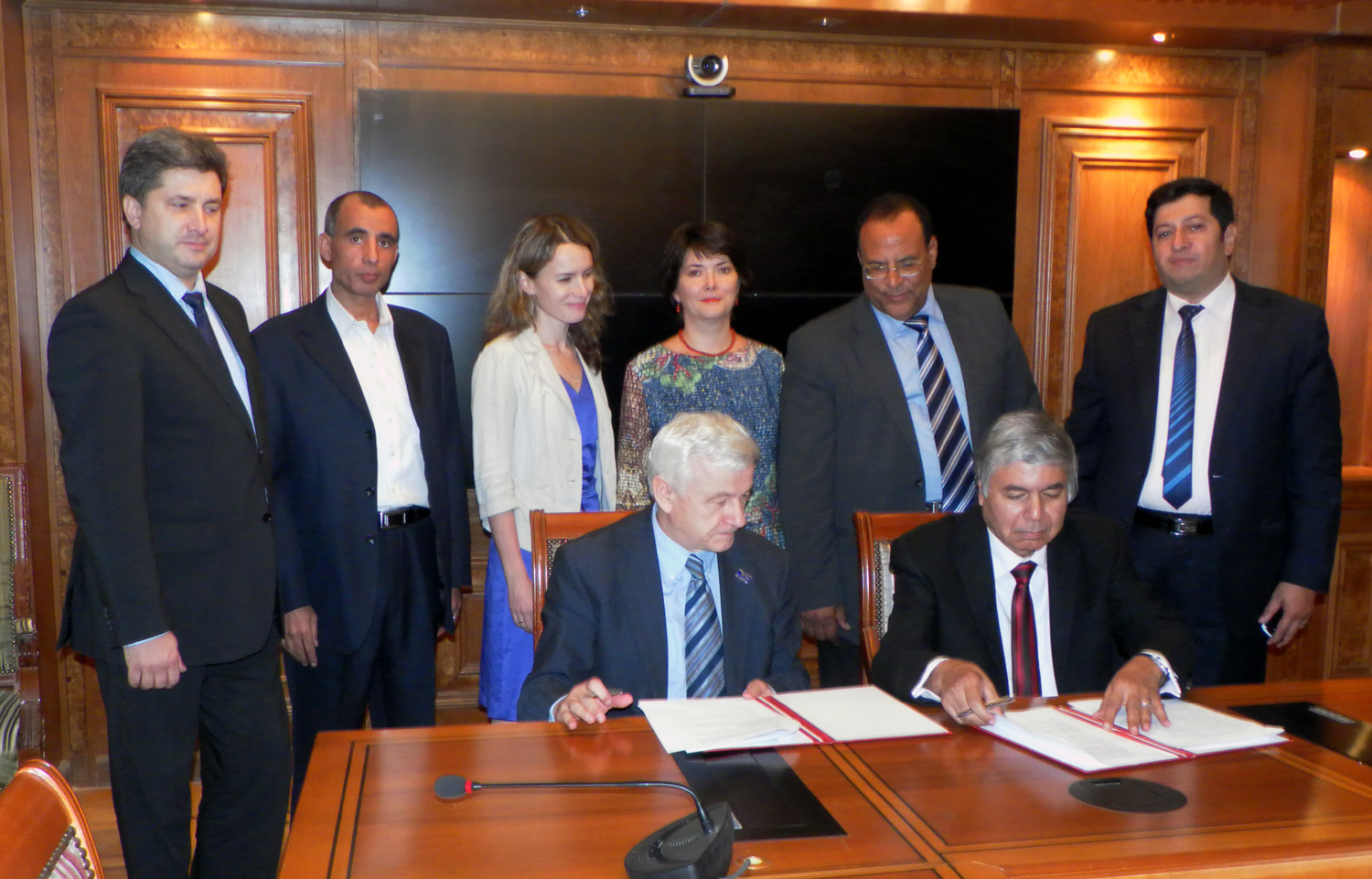The fifth Session of the ARE-JINR Joint Coordination Committee
News, 06 November 2013
The fifth Session of the Joint Coordination Committee (JCC) on cooperation between the Arab Republic of Egypt and JINR was held on 30-31 October 2013 in Cairo. On the JINR side a delegation was headed by the JINR Vice-Director Richard Lednický. Deputy Chief Scientific Secretary D.V. Kamanin, FLNP Deputy Director Otilia Culicov, and member of the International Cooperation Department A.A.Kotova participated in the session.
On 30 October, the JINR delegation was welcomed by Minister of Scientific research of Egypt Professor Ramzy George Stino. He expressed his support and stressed the importance of enhancement of cooperation between JINR and Egypt. He also presented his vision of its near-term prospects. Professor Stino accepted an invitation of head of the JINR delegation to pay a return visit to Dubna.
A meeting of the fifth session of the Joint Coordinating Committee for ARE-JINR Cooperation began with a welcoming speech of Acting President of the Academy of Scientific Research and Technology (ASRT) and Executive Director of the Egyptian Science and Technology Development Fund (STDF) Professor Mahmoud Sakr. He called the current cooperation extremely successful, particularly through many joint publications, and expressed his readiness to continue and develop the cooperation.
During the meeting, R. Lednický acquainted Egyptian colleagues with major events of the Institute activity in 2013; O. Culicov presented in her report detailed information on the results and plans of joint projects of FLNP and Egyptian scientists. D. Kamanin spoke about plans for development of the Laboratory of Nuclear Reactions, including the Nanotechnology Center, and about the status of the current joint project on resonance laser ionization.
Egyptian colleagues also listened to the information on programme for development of UC modern educational programmes for teachers and school students and a proposal of the Laboratory of Nuclear Problems for organization of a joint project on using opportunities and development of new methods of analysis of "color" X-ray images at newly developed at JINR pixel detectors based on modified arsenide gallium (GaAs:Cr) and electronic microchips "Medipics". The unique production technology (GaAs:Cr) was developed in Russia and detectors based on it now are installed only on microtomograph «MARS» which is situated in Dubna and was made in New Zealand by an order of JINR.
The parties agreed on distribution of contribution of Egypt to JINR in 2013 among projects and also approved the budget of the forthcoming 6th Practice for young ARE researchers at JINR, which will begin in May 2014 in Dubna. Although it is impossible for the Egyptian side to start immediate massive support of the mega-science project NICA, the Committee launched two new joint projects in the Laboratory of High Energy Physics associated with this project. An offer of the Egyptian side to send several employees for long-term work at JINR was a feature of this session.
The protocol which was signed on 31 October by Professor R. Lednický and Professor T. Hussein fixed intention to hold a large workshop, aimed to total the milestones of the five-year cooperation between ARE and JINR and to form a programme of cooperation for the next five years. The sides expressed interest in attracting the Russian Foundation for Basic Research and the Egyptian Science and Technology Development Fund to financing of the workshop and planned the event for the end of 2014.
The JINR delegation visited Children’s Cancer Center of Egypt at the end of the Committee session. A meeting with administration and leading experts of the Cancer Center was organized by Professor Nadia Zakhary, a former Minister of Research and Technology of Egypt, who visited JINR in May this year. Representatives of the Cancer Center were interested in directions of JINR activity related to nuclear medicine and wished to establish contacts. They were especially interested in possibility of sending students and specialists to JINR for education and training. The meeting was finished with a detailed excursion for the JINR delegation to the Cancer Center.

